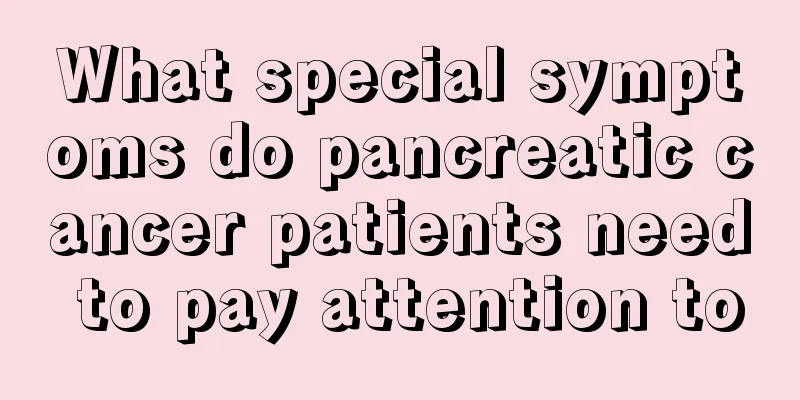Can rhinitis cause dizziness and nausea?

|
When people experience symptoms, they always wonder whether they are caused by other diseases or whether they may be complications. Nowadays, air pollution is serious and many children suffer from rhinitis. Sometimes rhinitis attacks will cause some complications, such as nasal congestion, runny nose, fever and cough, etc. Some parents find that their children also have symptoms of dizziness and nausea. Can rhinitis cause dizziness and nausea? Let’s learn about it together~ 1. Can sinusitis cause dizziness? Sinusitis is a common disease, which can be divided into acute and chronic types. Acute purulent sinusitis is often secondary to acute rhinitis, with nasal congestion, purulent discharge, and headache as the main features; chronic purulent sinusitis is often secondary to acute purulent sinusitis, with purulent discharge as the main manifestation, and may be accompanied by nasal congestion of varying severity, headache, and olfactory disturbance. Pay attention to physical exercise, work and rest, dress appropriately, breathe fresh air more, avoid dry nose, and do not use nasal drops easily. Diagnose and treat nasal lesions in a timely manner, and nearby lesions need to be treated for infection. Acute sinusitis: Early symptoms are similar to those of acute rhinitis or colds, but the systemic symptoms are more obvious than those in adults. Therefore, in addition to nasal congestion and excessive purulent discharge, there may be symptoms such as fever, dehydration, mental depression or irritability, rapid breathing, refusal to eat, and even convulsions. It is also accompanied by sore throat and cough; it may also be accompanied by acute otitis media, nosebleed, etc.; older children may complain of headache or pain on one side of the cheek. Chronic sinusitis: The main symptoms are intermittent or frequent nasal congestion, mucous or mucopurulent nasal discharge, and frequent nose bleeding. Severe patients may show symptoms such as lack of energy, poor appetite, weight loss or low fever, and may even be followed by systemic diseases such as anemia, rheumatism, joint pain, colds, gastrointestinal or kidney diseases, resulting in developmental impairment. Due to long-term nasal obstruction and mouth breathing, the children suffer from developmental abnormalities in the maxillofacial, chest and intellectual functions. 2. Causes of sinusitis in children In addition to nasal congestion and purulent nasal discharge, sinusitis in children may also cause fever, cough, mental depression, irritability, and may be accompanied by otitis media, nosebleeds, and joint pain. Older children may experience headaches. After chronic rhinitis is formed, obstructive nasal sounds will appear... In addition to nasal congestion and purulent nasal discharge, children with rhinitis may also have fever, cough, mental depression, irritability, and may also be accompanied by otitis media, nosebleeds and joint pain. Older children may have headaches. After the formation of chronic rhinitis, there will be occlusive nasal sounds and mouth breathing, and the mucous nasal discharge will be inexhaustible. Long-term nasal obstruction and mouth breathing will affect the development of the face and chest. There are many causes of sinusitis in children. The following are the three most common causes. They are mainly due to improper treatment of diseases such as colds and rhinitis, which aggravates the condition and develops into sinusitis. 1. Cold This is the most common reason. Children catch colds an average of 6-8 times a year, and 5-10% of each cold will be complicated by sinusitis, while for adults this rate is only 0.5-1%. If a child's cold is not completely cured, it is very likely to develop sinusitis. 2. Allergic rhinitis Because allergic rhinitis in children is mostly caused by genetics, there are many people who suffer from allergic rhinitis since childhood. According to statistics, if both parents have allergic rhinitis, more than 80% of the children will have allergic rhinitis. If one of the father or mother has allergic rhinitis, 50% of the children will inherit it, and about 50% of children with allergic rhinitis will have sinusitis. 3. Immune function and sinus function are not yet mature The younger the age, the greater the chance of sinusitis. Above seven years old, as the immune function and sinus function gradually mature, the frequency of sinusitis decreases. This is why children's colds are more likely to develop sinusitis, while adults are less likely to do so. |
<<: I feel dizzy and nauseous after waking up from a nap
>>: What should I do if my waist is in pain?
Recommend
How to have a plastic surgery on the mouth
With the rapid development of the times in recent...
What's wrong with calf cramps
Almost everyone has experienced calf cramps. Some...
What causes motion sickness?
When riding in a car or boat, due to the stimulat...
Does watermelon contain vitamin C?
Watermelon is a common fruit in our lives, especi...
The reason why toes feel like being pricked by needles when walking
In daily work and life, walking, running, jumping...
How to soothe the liver, regulate qi and open up blood vessels
Many people are unaware of the symptoms of liver-...
There are more and more gastric cancer patients, and 10 types of people should be most vigilant!
Gastric cancer is a malignant tumor that poses a ...
Treatment of gallbladder cancer metastasis
Gallbladder cancer grows rapidly after onset and ...
What are the symptoms of intracranial hypertension in brain cancer
Intracranial hypertension is a symptom of brain c...
What is the cause of death from nasopharyngeal cancer
Nasopharyngeal cancer is a common killer that dir...
Is Coke high in calories?
I believe many people like to drink cola. It is h...
What is the use of pufferfish in my world
Recently, a mobile game called Minecraft has beco...
Caloric analysis of cooked duck eggs
Cooked eggs are a kind of food that we often choo...
How to tell if there is a lump in the breast
Women's breasts are very fragile and need to ...
What are the most effective methods for treating fibroids?
What are the most effective methods for treating ...









